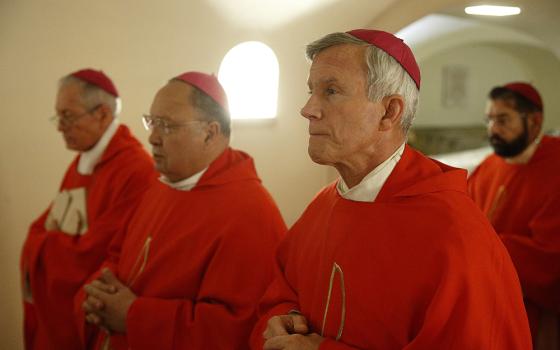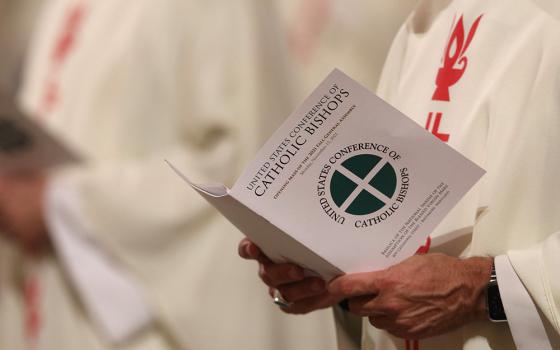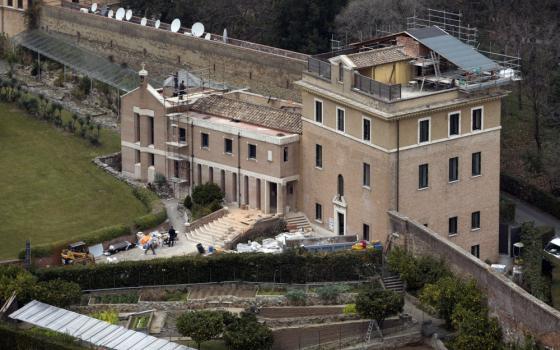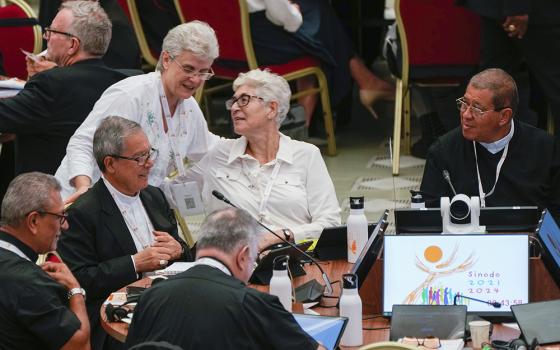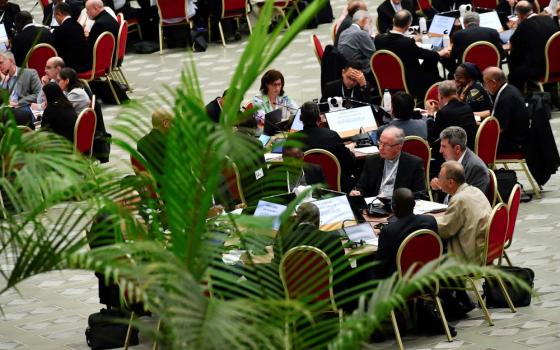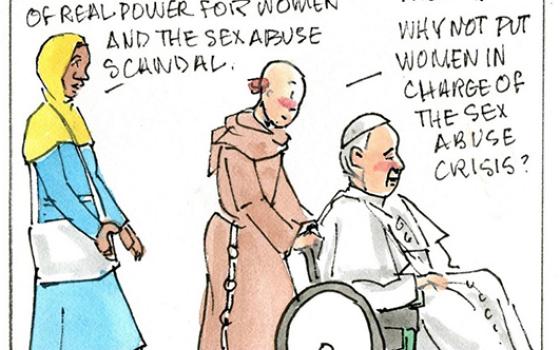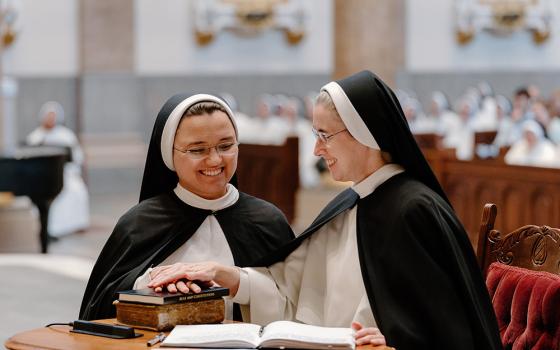
German Cardinal Gerhard Müller appears on Eternal Word Television Network's "The World Over" with host Raymond Arroyo during an Oct. 5, 2023, broadcast. (NCR screenshot/YouTube/EWTN)
A Catholic cardinal who is a former head of the Vatican's doctrinal office and a vocal critic of Pope Francis' ongoing monthlong summit on the future of the church has defied the pontiff's request that summit members maintain confidentiality about its proceedings.
German Cardinal Gerhard Müller, who led the Vatican's powerful Congregation for the Doctrine of the Faith 2012-17, appeared Oct. 5 on the Eternal Word Television Network's nightly news program.
Müller, however, expressed optimism about the start of the high-stakes summit, which is formally known as a Synod of Bishops and is taking place Oct. 4-29.
"I have … a certain form of optimism, but at the end we must wait in what direction it will go and what will be the decisions behind the scenery. That is always the problem," said Müller, describing the conversations at his table for the synod as "very good."
Müller's response came in an interview with EWTN host Raymond Arroyo, who asked the cardinal if he remained concerned about the synod being, as Muller had previously characterized it, a "hostile takeover" of the church.
In addition to expressing fears about the synod prior to its launch, multiple sources have confirmed to NCR that Müller did not attend the Sept. 30-Oct. 3 spiritual retreat for synod delegates, held outside Rome..
Advertisement
But while Müller — who, despite being retired, was personally invited by Francis to take part in the synod — seemed to slightly shift his position on the synod, he also went on to criticize his successor and fellow synod delegate, Cardinal Víctor Manuel Fernández, who now runs the Vatican's doctrinal office.
Fernández, said Müller, had erred when speaking in a recent interview about Francis' "magisterium."
"That doesn't exist," he said. "The pope does not have his own doctrine."
"Surely the pope has a special authority in the church according to our Catholic Church, but he is not a person who receives a new revelation," he continued.
Müller's interview with EWTN came one day after the Vatican published its formal set of rules for conduct by synod members, known in Italian as the "regolamento," which stated that delegates are bound by "confidentiality and discretion regarding both their own interventions and the interventions of other Participants."
In an Oct. 5 press briefing, the head of the Vatican's Dicastery for Communications, Paolo Ruffini, said that synod delegates were encouraged to "take time to discern, take time to listen to each other" rather than speaking to the press about the proceedings.
In his own opening remarks on Oct. 4, Francis told the more than 450 synod participants to fast from media interviews, complaining that past synods have been reduced to one or two hot button issues. Francis mentioned in particular that, in anticipation of this synod, he had seen press coverage focus on the possibility that the Catholic Church might ordain women as priests.
The unusual synod rules mark a departure from procedures used at four previous synods hosted by Francis. During those gatherings, participants were largely free to give interviews to members of the press. They were also frequently invited to take part in daily press briefings organized by the synod office, so that the delegates could give firsthand accounts of their experiences of the synod process.

